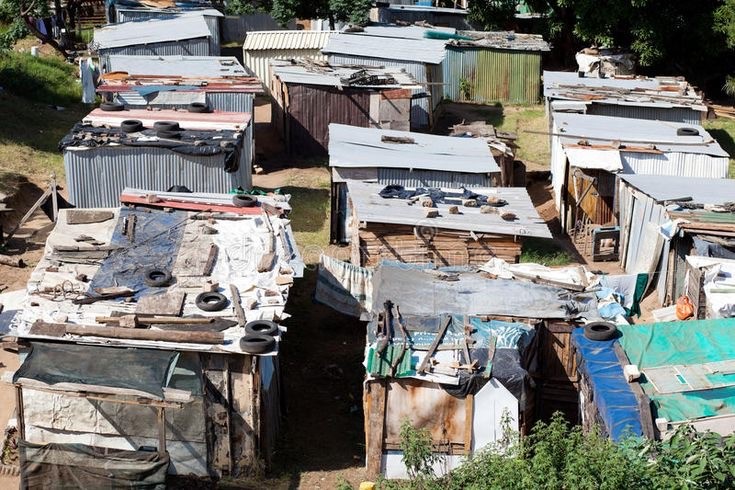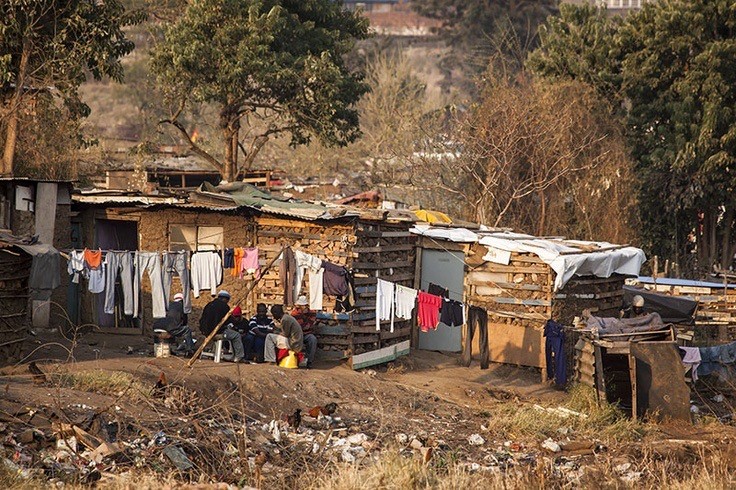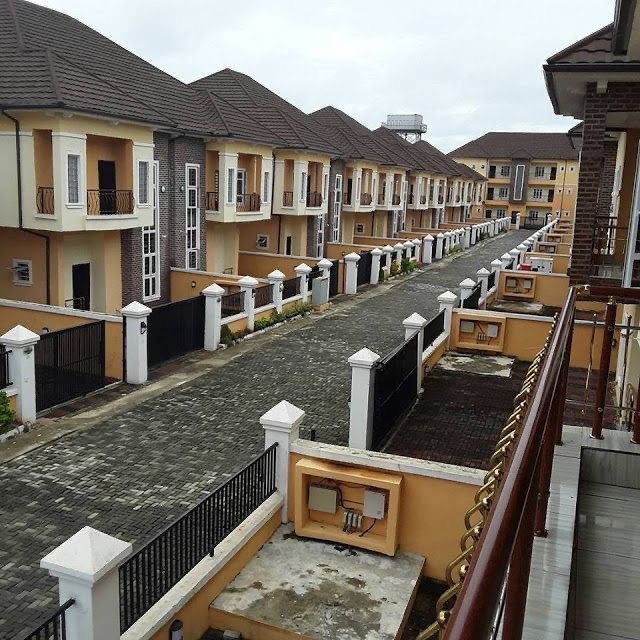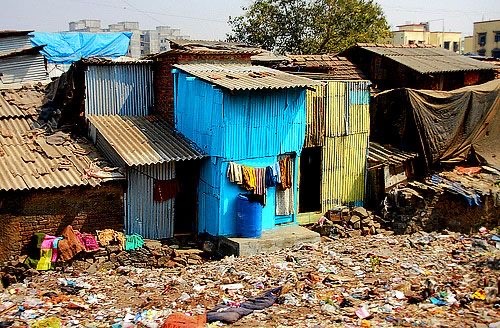In Nigeria’s housing market, a compelling story has unfolded in recent years—a journey reminiscent of a rollercoaster, marked by alternating periods of thriving prosperity and sobering decline. While it gleams with the promise of tremendous growth and untapped economic potential, it also harbors substantial challenges, particularly in the realm of affordability.
Nigeria, as one of Africa’s largest economies, has experienced periods of rapid urbanization and economic progress. These factors have contributed to an increase in housing demand, resulting in price increases in the housing market. Property values rise during times of prosperity, highlighting real estate as a hot investment opportunity.
However, these booms are often accompanied by downturns, putting investors and homeowners in peril. Economic recessions, political unrest, and the ebb and flow of oil prices can all contribute to property market crashes. The aftermath of these collapses might include a drop in property values, an increase in foreclosures, and a slowing of new construction.
In Nigeria’s housing market, affordability is a crucial and challenging issue. Despite the skyrocketing demand for housing, a growing number of Nigerians are unable to find homes that are within their means. The factors contributing to the current affordability dilemma are complex and require further investigation.

Affordable housing in Nigeria faces significant challenges due to construction-related costs, including materials, labor, and various other expenditures associated with construction. These often exorbitant costs are subsequently passed on to potential homeowners, resulting in a continual increase in real estate prices that renders homeownership unattainable for many.
Land scarcity in metropolitan areas looms large over affordability. With a shortage of available land, land prices soar, causing a ripple effect on the overall housing prices. This convergence of factors further compounds the already daunting task of finding affordable accommodation in Nigeria’s urban environments.
The severe income disparity that prevails in Nigeria is a harsh and unyielding reality. As a substantial portion of the population grapples with low incomes, this inequality casts a long shadow over efforts to secure affordable housing. For many, the prospect of finding suitable accommodation becomes a Herculean endeavor due to the widening gap between the affluent and the disadvantaged.

Access to mortgage financing remains a formidable obstacle for countless Nigerians. High-interest rates, stringent eligibility criteria, and limited loan terms collectively conspire to thwart the aspirations of prospective homeowners seeking affordable home loans. This financial labyrinth complicates the path to realizing the dream of homeownership.
The expansion of informal settlements has been facilitated by the scarcity of affordable housing options, bringing the housing issue into striking relief. For individuals unable to obtain affordable accommodation, these settlements—often characterized by subpar living conditions and limited infrastructure—have emerged as a last resort. The emergence of informal settlements paints a stark picture of the tragic repercussions of Nigeria’s housing affordability problem, as residents are forced to live in conditions far below what is considered respectable for quality of living.
Faced with the profound gravity of the housing affordability crisis, the Nigerian government has undertaken a series of proactive measures to address this pressing issue head-on. Among the notable initiatives, the National Housing Policy and the National Housing Fund have emerged as beacons of hope in the quest to promote affordable housing.
These extensive programs are intended to act as agents of change. Their primary goals include encouraging the private sector to engage in housing, making mortgage finance more accessible, and supporting low-income individuals in their pursuit of housing security. Many Nigerians seeking affordable housing solutions can find some solace in the promise of these efforts.

Nevertheless, several obstacles still hinder affordable housing initiatives. The full realization of these potential programs has been impeded by implementation challenges, resulting in disappointing progress. Despite these hurdles, the government remains steadfast in its commitment to addressing the housing affordability dilemma and improving the lives of its citizens by providing accessible and affordable housing opportunities.
In the coordinated efforts to tackle the housing affordability issue, private real estate developers emerge as key players, particularly in the realm of building techniques and materials. They possess the ability to introduce transformative solutions, effectively reducing construction expenses through the adoption of new strategies and exploration of alternative building materials and technologies. This innovative approach not only enhances the viability of affordable housing but also paves the way for cutting-edge and eco-friendly housing options.
Public-private partnerships play a pivotal role in the broader context of addressing the housing affordability problem. These partnerships serve as a hub where organizations from both the public and private sectors collaborate to advance a common goal. Together, they can expedite the implementation of affordable housing initiatives, making the most of the resources of both sectors. This collaboration orchestrates a well-balanced symphony of activity in order to address the housing affordability issue effectively.

Finding answers to the affordability dilemma and managing the cyclical ebb and flow of boom and bust are concurrent challenges in Nigeria’s housing sector, which stands on the verge of collapse. Multifaceted approaches are necessary to achieve this delicate balance. The key to promoting equitable growth and ensuring that the benefits of urbanization reach all segments of society lies in sustainable urban planning. The cornerstone that reinforces the accessibility of housing is investment in reliable infrastructure. Lastly, targeted housing policies serve as the compass that guides individuals toward affordability. Thanks to this complex interplay of forces, Nigeria’s housing market envisions a future in which every individual, regardless of their economic situation, can aspire to obtain a place to call home.
The pursuit of championing affordable housing should expand its focus beyond mere quantity and delve into the realms of quality and accessibility. While increasing the number of homes is crucial, upholding stringent standards of quality and ensuring unobstructed accessibility are equally imperative.
The foundation upon which this vision can be built is sustainable and inclusive urban development. It acts as a beacon directing individuals toward cities that transcend conventional economic affluence, aiming to create a society characterized by social equity, where every resident has access to safe and affordable housing, regardless of their background.
Quality assumes paramount importance in this narrative of home development. It encompasses more than just the structural integrity of houses, considering the overall living standards. Accessibility entails not only the geographical proximity of homes but also factors like cost, diversity, and the removal of barriers that hinder housing opportunities.

Through sustainable urban development, the canvas of Nigeria’s cities can be adorned with vibrant hues of economic progress and the inclusive shades of social equity. These cities represent the harmonious coexistence of prosperity and accessibility, where safe and affordable housing is not a luxury but a fundamental right enjoyed by all.
Urbanization and economic considerations have led to boom and bust cycles in the Nigerian housing market. However, the affordability dilemma continues to stand as a significant obstacle, making it challenging for many Nigerians to acquire quality homes. A multifaceted strategy involving government initiatives, private sector participation, and sustainable urban development is imperative to address this challenge. The future of Nigeria’s housing market hinges on its ability to provide all residents with housing that is both affordable and accessible.
Sources
- https://www.voanews.com/amp/millions-in-nigeria-struggle-for-affordable-housing-amid-real-estate-boom-/6458742.html
- https://iopscience.iop.org/article/10.1088/1757-899X/640/1/012009#:~:text=Being%20able%20to%20afford%20decent,children’s%20school%20fees%20and%20food.
- https://m.bizcommunity.com.ng/Article/157/568/209952.html
- https://guardian.ng/news/high-prices-push-govt-homes-beyond-average-nigerians-reach/amp
- https://guardian.ng/news/high-prices-push-govt-homes-beyond-average-nigerians-reach/amp




